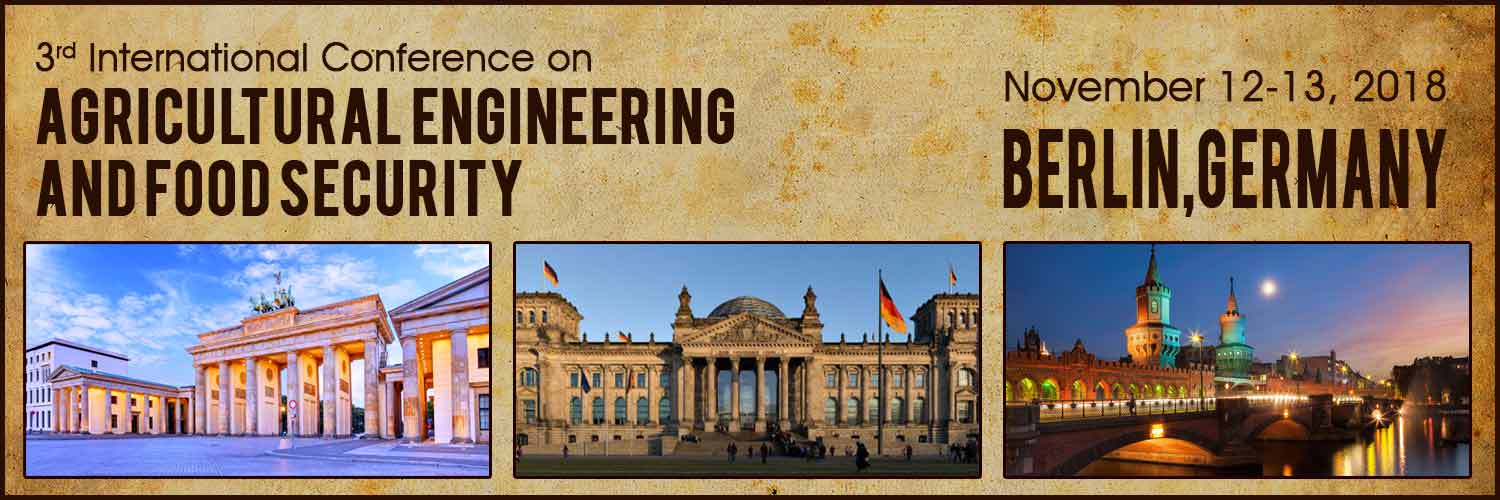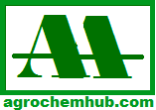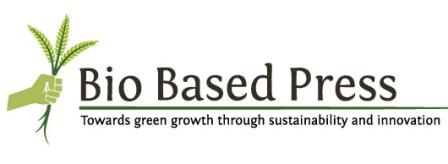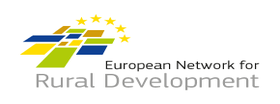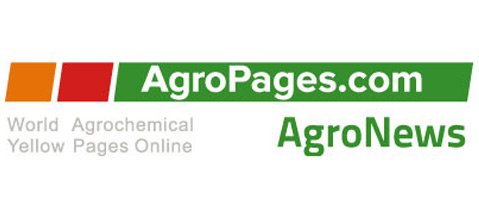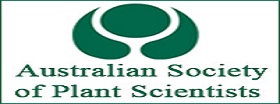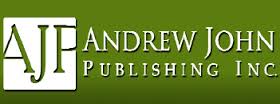Previous Speakers

Rosaly V. Manaois
Philippine Rice Research Institute Philippines

Salah Abdel-Rahman
Genetic Engineering and Biotechnology Research Institute Egypt

Peter J Leggo
University of Cambridge UK

Sanjay Mukherjee
Sheffield Hallam University UK

David Crookall
University de Nice Sophia Antipolis France

Alessandro Leone
University of Foggia Italy

Kalanithi Nesaretnam
Minister,Embassy of Malaysia Belgium

Nigel G Halford
Rothamsted Research UK
Recommended Global EEE & Engineering Webinars & Conferences
Europe & UK
Asia Pacific & Middle East
Canada
AgriFood Security 2018
About Conference
Conference Series llc LTD takes the opportunity to invite speakers, participants, students, and delegates from across the globe to its premier 3rd International Conference On Agricultural Engineering and Food Security (AgriFood Security 2018), to be held during Nov 12-13, 2018 in Berlin, Germany. This revered conference will be focusing on the theme “Revolutionizing Food Safety for Secured Future”. Conference Series organizes 3000+ Conference series llc LTD across the globe. Events inclusive of 600+ Conferences, 1200+ Workshops and 1200+ Symposiums Every year across the USA, Europe & Asia with support from 1000 more scientific societiesConference Series llc LTD takes the opportunity to invite speakers, participants, students, and delegates from across the globe to its premier 3rd International Conference On Agricultural Engineering and Food Security (AgriFood Security 2018), to be held during Nov 12-13, 2018 in Berlin, Germany. This revered conference will be focusing on the theme “Revolutionizing Food Safety for Secured Future”. Conference Series llc LTD organizes 3000+ Conference series across the globe. Events inclusive of 600+ Conferences, 1200+ Workshops and 1200+ Symposiums Every year across the USA, Europe & Asia with support from 1000 more scientific societies.
- Academicians
- Directors/CEO.
- Managers/Engineers.
- Researchers from top universities
- Scientists from top research institutes
- Scholars
- Nanotechnology Students, Scientists,Researchers,Societies
- Agriculture
- Agriculture Faculty
- Food Associations and Societies
- Business Entrepreneurs
- Training Institutes
- Manufacturing Medical Devices Companies
- Agriculture Engineers
- Industrial Professionals
- Students
Why to attend
Agri and Food Security tiles a platform to globalize the research by installing a dialogue between industries and academic organizations and knowledge transfer from research to industry. Agri- Food Security-2018 aims in proclaim knowledge and share new ideas among the professionals, industrialists and students from research areas of Food, Agriculture to share their research experiences and indulge in interactive discussions and special sessions at the event. With members from around the world focused on learning about Food , this is your single best opportunity to reach the largest assemblage of participants from all over the globe. Conduct demonstrations, distribute information, meet with the current and potential customers, make a splash with a new product line, and receive name recognition at this 2-day event.
Intended Audience
The report is especially intended for entrepreneurs, investors, venture capitalists, and other readers with a need to know where the Graphene World market is headed in the next 5 years. Other readers who should find the report particularly valuable include Agri- Food marketing executives and government officials associated with the world initiative and other state-level programs that promote the development of the Graphene World industry. The report’s findings and conclusions should also be of interest to the broader Food Security community.
World-renowned speakers, the most recent techniques, tactics and the newest updates along with the Advances in the fields of Agriculture and Food.
Come be Part of it...!
Sessions/Tracks
Track 1: Agriculture and Food Security
Agriculture conference focuses on the topic food security and welcomes to all person who related to food security. A policy orientation for food security and safety include state-wise, previous, current and future policy issues, and cope-wise sustainability of agriculture. The particular part of food distribution in our society can be examined through the research of the changes in the food supply chain. Globalization, in particular, has significant effects on the food supply chain by validating scale effect in the food distribution industry. Provision of an adequate amount of essential nutrients to human beings has ever been the challenge in the province of food security. Hence, malnutrition is heavily interlinked to food security consideration, yet difficult to be eliminated. Food security and policy, therefore, become magnetic in the province of research.
Track 1-1 Food and nutritional security
Track 1-2 Sustainable intensification of food production systems
Track 1-3 Innovative ways of feeding increasing population
Track 1-4 Food storage and technology
Track 1-5 Fermentation Technology and Cereals
Track 1-6 Food packaging
Track 1-7 Post-Harvest Handling and Processing
Keywords : Agriculture Conferences | Food Security Conferences | Organic Farming Conferences
Related Conferences on : Agriculture Conferences | Food Security Conferences Europe | 2018 Food Engineering Conferences | USA Food Meetings Events
11th World Plant Biotechnology Conferences, March 5-7, 2018, Paris, France; 23rd Global Food Technology Conferences, May 14-16, 2018, Rome, Italy; 5th Global Plant Genomics Conferences, June 20-21, 2018, Rome, Italy; 12th International Oceanography Conferences, June 28-30, 2018, Berlin, Germany; 8th International Food Conferences, June 11-13, 2018, Barcelona, Spain; 6th Global Plant Science Conferences, October 29-30, 2018, Valencia, Spain; 6th International Sports Nutrition Conferences, August 16-18, 2018, Dublin, Ireland; 19th International Nutrition & Health Conferences, April 12-14, 2018, Amsterdam, Netherlands; 15th International Nutrition Meetings, May 24-26, 2018, Vienna, Austria; 21st European Nutrition Conferences, June 11-13, 2018, Dublin, Ireland; 14th International Nutraceuticals Conferences, July 19-20, 2018, London, UK
Related Societies:
The Global Plant Council (GPC); The Federation of European Societies of Plant Biology; European Rural History Organisation (EURHO); The European Environment Agency (EEA); The European Plant Science Organisation; The European Society for New Methods in Agricultural Research (ESNA), American Society of Agronomy (ASA); American Society of Plant Biologists (ASPB); Crop Science Society of America (CSSA); Weed Science Society of America (WSSA) Soil Science Society of America (SSSA);
Track 2: Agricultural Production Systems & Rural Agribusiness
Agriculture was the key development in the rise of sedentary human civilization, whereby farming of domesticated species created food surpluses that nurtured the development of civilization. Agribusiness is the business of agricultural production. Within the agriculture industry, "agribusiness" is used simply as a portmanteau of agriculture and business, referring to the range of activities and disciplines encompassed by modern food production.
Keywords : Agriculture Conferences | Food Technology Conferences | Organic Farming Conferences
Related Conferences on: Agriculture Conferences | Food Security Conferences Europe | 2018 Food Engineering Conferences | Food Meetings Canada Events
11th World Plant Biotechnology Conferences, March 5-7, 2018, Paris, France; 23rd Global Food Technology Conferences, May 14-16, 2018, Rome, Italy; 5th Global Plant Genomics Conferences, June 20-21, 2018, Rome, Italy; 12th International Oceanography Conferences, June 28-30, 2018, Berlin, Germany; 8th International Food Conferences, June 11-13, 2018, Barcelona, Spain; 6th Global Plant Science Conferences, October 29-30, 2018, Valencia, Spain; 6th International Sports Nutrition Conferences, August 16-18, 2018, Dublin, Ireland; 19th International Nutrition & Health Conferences, April 12-14, 2018, Amsterdam, Netherlands; 15th International Nutrition Meetings, May 24-26, 2018, Vienna, Austria; 21st European Nutrition Conferences, June 11-13, 2018, Dublin, Ireland; 14th International Nutraceuticals Conferences, July 19-20, 2018, London, UK; 3rd International Food Chemistry Conferences, July 16-18, 2018, Rome, Italy; 21st International Food Processing Conferences, October 11-13, 2018, Moscow, Russia; 10th Euro-Global Aquaculture Conferences, March 5-6, 2018, Paris, France; 21st Euro-Global Food Summit, March 8-10, 2018, Berlin, Germany
Related Societies:
European Rural History Organisation (EURHO); The European Environment Agency (EEA); The Federation of European Societies of Plant Biology; The Global Plant Council (GPC) ; The European Plant Science Organisation; The European Society for New Methods in Agricultural Research (ESNA) American Society of Plant Biologists (ASPB); Soil Science Society of America (SSSA); Crop Science Society of America (CSSA); American Society of Agronomy (ASA); Weed Science Society of America (WSSA), Asia-Pacific Association of Agricultural Research Institutions (APPARI); Australian Bureau of Agricultural and Resource Economics and Sciences (ABARES)
Track 3: Organic Farming
Organic farming is an alternate agricultural system that originated early within the twentieth century in reaction to quickly dynamic farming practices. Organic farming continues to be developed by numerous organic agriculture organizations nowadays. It depends on fertilizers of organic origin like compost manure, manure, and bone meal and places emphasis on techniques like crop rotation and companion planting. Biological pest management, mixed cropping and also the fostering of insect predators square measure inspired. In general, organic standards are designed to permit the utilization of naturally occurring substances whereas prohibiting or strictly limiting artificial substances. for example, present pesticides like pyrethrin and insect powder are permissible, whereas artificial fertilizers and pesticides are typically prohibited. artificial substances that are allowed embrace, for instance, copper sulfate, elemental sulfur and Ivermectin. Genetically changed organisms, nanomaterial’s, human biodegradable pollution sludge, plant growth regulators, hormones, and antibiotic use in livestock agriculture are prohibited. Reasons for advocation of organic farming embrace real or perceived advantages in property, openness, autonomy, autonomy/independence, health, food security, and food safety, though the match between perception and reality is frequently challenged.
Track 3-1 Biodynamic Farming
Track 3-2 Biodynamic agriculture
Track 3-3 Climate-friendly gardening
Track 3-4 Weed Management
Track 3-5 Organic Horticulture
Track 3-6 Organic Food
Track 3-7 Grain science and technology
Keywords: Agriculture Biotechnology Conferences | Agriculture and Food Security Conferences
Related Conferences on : Agriculture Conferences | Food Security Conferences Europe | 2018 Food Engineering Conferences | Food MeetingsMiddle East Events
Livestockcongress-2018, Oct 18-19, 2018 Paris, France.10th World Congress on Veterinary & Animal Science, May 18-19, 2018 Osaka, Japan. 9th International Conference on Animal Health & Veterinary Medicine, July 16-17, 2018 Atlanta, Georgia, USA. Global Congress on Vertinary and Animal Health, Dec 5-6, 2018 Lisbon, Portugal
Related Societies:
All India Organic Farmers Society (AIOFS).Central Laboratory Of Organic Agriculture (CLOA). Institute Of Ecological Farming, University Of Natural Resources And Applied Life Sciences (BOKU).Hellenic Veterinary Medical Society, Slovak Small Animal Veterinary Association, Austrian Small Animal Veterinary Association, Belgian Veterinary Computer Association, World Equine Veterinary Association, Irish Veterinary Acupuncture Society.
Track 4: Agricultural Biotechnology
Agricultural Biotechnology is the combination of scientific tools and techniques including genetic engineering, molecular markers, molecular diagnostics, vaccines, and tissue culture to modify agricultural productivity, quality, diversity and species protection. Agricultural Biotechnology is developed to cope up with current challenges which are usually cannot be solved by traditional practices. Agricultural Biotechnology also helps in climate adaptation, stress management and disease management. Biotechnology has introduced modern technologies to deal with the global food crisis.
Track 4-1 GM crops
Track 4-2 Technologies for rapid crop improvement
Track 4-3 Genomics technologies for tropical agriculture
Track 4-4 Genetic Engineering
Track 4-5 Tissue Culture
Track 4-6 Genes and traits of interest for crops
Track 4-7 Safety testing and government regulations
Keywords : Agriculture Conferences | Food Technology Conferences | Organic Farming Conferences
Related Conferences on: Agriculture Conferences | Food Security Conferences Europe | 2018 Food Engineering Conferences | USA Food Meetings Events
11th World Plant Biotechnology Conferences, March 5-7, 2018, Paris, France; 23rd Global Food Technology Conferences, May 14-16, 2018, Rome, Italy; 5th Global Plant Genomics Conferences, June 20-21, 2018, Rome, Italy; 12th International Oceanography Conferences, June 28-30, 2018, Berlin, Germany; 8th International Food Conferences, June 11-13, 2018, Barcelona, Spain; 6th Global Plant Science Conferences, October 29-30, 2018, Valencia, Spain; 6th International Sports Nutrition Conferences, August 16-18, 2018, Dublin, Ireland; 19th International Nutrition & Health Conferences, April 12-14, 2018, Amsterdam, Netherlands
Related Societies:
Crop Science Society of Japan (CSSJ); The Asian Crop Science Association (ACSA); The Asia and Pacific Seed Association (APSA); Asian Pacific Weed Science Society (APWSS); Asia & Pacific Plant Protection Commission(APPPC); Asian Vegetable Research and Development Center (AVRDC), Alliance of Crop, Soil, and Environmental Science Societies (ACSESS); The American Horticultural Therapy Association (AHTA); The American Horticultural Society (AHS); The American Phytopathological Society (APS); International Society for Horticultural Science
Track 5: Agriculture, Animal Care, and Veterinary Science
Intensive animal farming or industrial livestock production, also colloquially known as factory farming, is a production approach towards farm animals in order to maximize production output, while minimizing production costs. Animal Science is described as "studying the biology of animals that are under the control of humankind." It can also be described as the production and management of farm animals
Track 5-1 Wildlife Management
Track 5-2 Animal Husbandry, Protection and Welfare
Track 5-3 Animal Psychology
Track 5-4 Animal Biotechnology
Track 5-5 Veterinary Medicine
Track 5-6 Animal welfare in international trade
Track 5-7 Livestock Production & Management
Track 5-8Animal Health Industry
Keywords : Agriculture Conferences | Food Technology Conferences | Organic Farming Conferences
Related Conferences on: Agriculture Conferences | Food Security Conferences Europe | 2018 Food Engineering Conferences | Middle East Food Meetings Events
11th World Plant Biotechnology Conferences, March 5-7, 2018, Paris, France; 23rd Global Food Technology Conferences, May 14-16, 2018, Rome, Italy; 5th Global Plant Genomics Conferences, June 20-21, 2018, Rome, Italy; 12th International Oceanography Conferences, June 28-30, 2018, Berlin, Germany; 8th International Food Conferences, June 11-13, 2018, Barcelona, Spain; 6th Global Plant Science Conferences, October 29-30, 2018, Valencia, Spain; 6th International Sports Nutrition Conferences, August 16-18, 2018, Dublin, Ireland; 19th International Nutrition & Health Conferences, April 12-14, 2018, Amsterdam, Netherlands
Related Societies:
European Rural History Organisation (EURHO); The European Environment Agency (EEA); The Federation of European Societies of Plant Biology; The Global Plant Council (GPC) ; The European Plant Science Organisation; The European Society for New Methods in Agricultural Research (ESNA) ; American Society of Plant Biologists (ASPB); Soil Science Society of America (SSSA); Crop Science Society of America (CSSA); American Society of Agronomy (ASA); Weed Science Society of America (WSSA)
Track 6: Fertilizers and Pesticides
A fertilizer is any material of natural or synthetic origin that is applied to soils or to plants tissues to supply one or more plant nutrients essential to the growth of plants. Fertilizers enhance the growth of plants. This goal is met in two ways, the traditional one being additives that provide nutrients. The second mode by which some fertilizers act is to enhance the effectiveness of the soil by modifying its water retention and aeration. Pesticides are substances meant for attracting, seducing, and then destroying, or mitigating any pest. They are a class of biocide. The most common use of pesticides is as plant protection products (also known as crop protection products), which in general protect plants from damaging influences such as weeds, plant diseases or insects. This use of pesticides is so common that the term pesticide is often treated as synonymous with plant protection product, although it is, in fact, a broader term, as pesticides are also used for non-agricultural purposes.
Track 6-1 Application of fertilizers & pesticides
Track 6-2 Constraints in biofertilizer technology
Track 6-3 Azolla-Anabena symbiosis
Track 6-4 Biochemical pesticides
Track 6-5 RNAI pesticides
Keywords: Agriculture Conferences | Food Security Conferences | Organic Farming Conferences
Related Conferences on: Agriculture Conferences | Food Security Conferences Europe | 2018 Food Engineering Conferences | Food Meetings Events
3rd International Food Chemistry Conferences, July 16-18, 2018, Rome, Italy; 21st International Food Processing Conferences, October 11-13, 2018, Moscow, Russia; 10th Euro-Global Aquaculture Conferences, March 5-6, 2018, Paris, France; 21st Euro-Global Food Summit, March 8-10, 2018, Berlin, Germany; 4th Annual Soil Science Conferences , May 24-26, 2018, London, UK; 20th International Conference on Pesticide, Fertilizer and Seed, June 21 - 22, 2018 Toronto, Canada; The California Weed Science Society’s Annual Conference, January 24-26, 2018 Santa Barbara, CA, USA; International Advances in Pesticide Application By the Association of Applied Biologists, January 9 – 11, 2018 Sussex, UK; Weed Science Society of America 2018 Annual Meeting, January 29– February 1 2018 Arlington, Virginia, USA; 28th German Conference on Weed Biology and Weed Control; February 27 – March 1 2018, Braunschweig, Germany
Related Societies:
The European Society for New Methods in Agricultural Research (ESNA); The European Association of Agricultural Economists (EAAE); European Society for Agricultural and Food Ethics (EurSafe); The European Federation of Biotechnology (EFB); The Phytochemical Society of Europe (PSE); Alliance of Crop, Soil, and Environmental Science Societies (ACSESS); The American Horticultural Therapy Association (AHTA); The American Horticultural Society (AHS); The American Phytopathological Society (APS); International Society for Horticultural Science
Track 7: Aqua Farming- Techniques & Methods
Aquaculture is the farming of fish, crustaceans, molluscs, aquatic plants, algae, and other aquatic organisms. Aquaculture involves cultivating freshwater and saltwater populations under controlled conditions, and can be contrasted with commercial fishing, which is the harvesting of wild fish. It is less commonly spelled aquiculture and is also known as Aqua farming. Mari culture refers to aquaculture practiced in marine environments and in underwater habitats.
Track 7-1 Fishing Technology
Track 7-2 Ocean Harvesting
Track 7-3 Aquaculture & Environment Interactions
Track 7-4 Aquaculture Diseases & Health Management
Track 7-5 Aquatic Physiology
Track 7-6 Diversification in Aquaculture
Track 7-7 Extensive Culture System
Track 7-8 Marine Biology
Track 7-9 Maritime Policy & Management
Track 7-10 Nutrition delivery and feeding practices
Keywords: Food Microbiology Conferences | Agriculture Conferences | Food Security Conferences
Related Conferences on : Agriculture Conferences | Food Security Conferences Europe | 2018 Food Engineering Conferences | Food Meetings USA Events
3rd International Food Chemistry Conferences, July 16-18, 2018, Rome, Italy; 21st International Food Processing Conferences, October 11-13, 2018, Moscow, Russia; 10th Euro-Global Aquaculture Conferences, March 5-6, 2018, Paris, France; 21st Euro-Global Food Summit, March 8-10, 2018, Berlin, Germany; 4th Annual Soil Science Conferences , May 24-26, 2018, London, UK; 4th European Agroforestry Conference, May 28-31, 2018, Nijmegen, The Netherlands; 20th International Conference on Agroforestry and Afforestation, January 29 - 30, 2018, Sydney, Australia; Purdue Pest Management Conference 2018, January 8-10, 2018 West Lafayette, Indiana; 20th International Conference on Agroforestry and Climate Change, January 25 - 26, 2018, Paris, France; 3rd International Conference On Environmental Sustainability, Development, And Protection, April 8 - 10, 2018, Budapest, Hungary.
Related Societies:
The Global Plant Council (GPC); The Federation of European Societies of Plant Biology; European Rural History Organisation (EURHO); The European Environment Agency (EEA); The European Plant Science Organisation; The European Society for New Methods in Agricultural Research (ESNA); The National Vegetable Society (NVS); Asia-Pacific Association of Agricultural Research Institutions(APPARI); African Seed Trade Association (AFSTA); National Centre for Genetic Engineering and Biotechnology(BIOTEC); Australian Bureau of Agricultural and Resource Economics and Sciences (ABARES);
Track 8: Agricultural Mechanization and Automation
The mechanization of farming practices throughout the world has revolutionized food production, enabling it to maintain pace with population growth. Agricultural mechanization has involved the partial or full replacement of human energy and animal-powered equipment by engine-driven equipment. The entire history of agriculture contains many examples of the use of tools, such as the hoe and the plough. But the ongoing integration of machines since the Industrial Revolution has allowed farming to become much less labor-intensive.
Track 8-1 Technology and Power in Agriculture
Track 8-2 Farm Machinery and Implements
Track 8-3 Facilities and Equipment for Livestock Management
Track 8-4 Environmental Monitoring
Track 8-5 Mechanization and Livestock production
Track 8-6 Recovery and Use of Wastes and by-Products
Keywords: Agriculture Conferences | Food Technology Conferences | Organic Farming Conferences
Related Conferences on: Agriculture Conferences | Food Security Conferences Europe | 2018 Food Engineering Conferences | Food Meetings Canada Events
3rd International Food Chemistry Conferences, July 16-18, 2018, Rome, Italy; 21st International Food Processing Conferences, October 11-13, 2018, Moscow, Russia; 10th Euro-Global Aquaculture Conferences, March 5-6, 2018, Paris, France; 21st Euro-Global Food Summit, March 8-10, 2018, Berlin, Germany; 4th Annual Soil Science Conferences , May 24-26, 2018, London, UK; 4th European Agroforestry Conference, May 28-31, 2018, Nijmegen, The Netherlands; 20th International Conference on Agroforestry and Afforestation, January 29 - 30, 2018, Sydney, Australia; Purdue Pest Management Conference 2018, January 8-10, 2018 West Lafayette, Indiana; 20th International Conference on Agroforestry and Climate Change, January 25 - 26, 2018, Paris, France; 3rd International Conference On Environmental Sustainability, Development, And Protection, April 8 - 10, 2018, Budapest, Hungary.
Related Societies:
The Global Plant Council (GPC); The Federation of European Societies of Plant Biology; European Rural History Organisation (EURHO); The European Environment Agency (EEA); The European Plant Science Organisation; The European Society for New Methods in Agricultural Research (ESNA); The National Vegetable Society (NVS); Asia-Pacific Association of Agricultural Research Institutions(APPARI); African Seed Trade Association (AFSTA); National Centre for Genetic Engineering and Biotechnology(BIOTEC); Australian Bureau of Agricultural and Resource Economics and Sciences (ABARES);
Track 9: Food Nano Technology
The meaning of nanofood is that nanotechnology methods or apparatuses are utilized amid development, creation, preparing, or bundling of the nourishment. It doesn't mean molecularly adjusted sustenance or nourishment created by nanomachines. Nanotechnologists are more idealistic about the possibility to change the current arrangement of sustenance handling and to guarantee the wellbeing of nourishment items, making a solid nourishment culture. They are additionally cheerful of upgrading the nutritious nature of sustenance through chose added substances and changes to the way the body processes and assimilates nourishment.
Track 9-1 Risk and safety assessment
Track 9-2 Food regulatory system
Track 9-3 Genetic modification
Track 9-4 Nutraceuticals
Track 9-5 Nanoencapsulation
Track 9-6 Nanostructure lipid carrier
Track 9-7 Food processing
Track 9-8 Nano Packaging
Keywords: Agriculture Conferences | Food Security Conferences | Organic Farming Conferences
Related Conferences on: Agriculture Conferences | Food Security Conferences Europe | 2018 Food Engineering Conferences | Middle East Food Meetings Events
23rd Global Food Technology Conferences, May 14-16, 2018, Rome, Italy; 5th Global Plant Genomics Conferences, June 20-21, 2018, Rome, Italy; 12th International Oceanography Conferences, June 28-30, 2018, Berlin, Germany; 8th International Food Conferences, June 11-13, 2018, Barcelona, Spain; 6th Global Plant Science Conferences, October 29-30, 2018, Valencia, Spain; 6th International Sports Nutrition Conferences, August 16-18, 2018, Dublin, Ireland; 19th International Nutrition & Health Conferences, April 12-14, 2018, Amsterdam, Netherlands; 15th International Nutrition Meetings, May 24-26, 2018, Vienna, Austria; 21st European Nutrition Conferences, June 11-13, 2018, Dublin, Ireland; 14th International Nutraceuticals Conferences, July 19-20, 2018, London, UK; 3rd International Food Chemistry Conferences, July 16-18, 2018, Rome, Italy; 21st International Food Processing Conferences, October 11-13, 2018, Moscow, Russia; 10th Euro-Global Aquaculture Conferences, March 5-6, 2018, Paris, France; 21st Euro-Global Food Summit, March 8-10, 2018, Berlin, Germany; 4th Annual Soil Science Conferences , May 24-26, 2018, London, UK
Related Societies:
European Society for Agricultural and Food Ethics (EurSafe); The European Federation of Biotechnology (EFB); The Phytochemical Society of Europe (PSE); Asian Pacific Weed Science Society (APWSS); Asia & Pacific Plant Protection Commission(APPPC); Asian Vegetable Research and Development Center (AVRDC)
Track 10: Advances in Food Science and Technology
The study of the chemical and physical properties of foods and of changes that may occur during processing, storage, etc.. The Institute of Food Technologists defines food science as the discipline in which the engineering, biological, and physical sciences are used to study the nature of foods. Food science deals with the application of basic sciences and engineering to study the physical, chemical, and biochemical nature of foods and the principles of food processing.
Related Conferences on: Agriculture Conferences | Food Security Conferences Europe | 2018 Food Engineering Conferences | Food Meetings Events
23rd Global Food Technology Conferences, May 14-16, 2018, Rome, Italy; 5th Global Plant Genomics Conferences, June 20-21, 2018, Rome, Italy; 12th International Oceanography Conferences, June 28-30, 2018, Berlin, Germany; 8th International Food Conferences, June 11-13, 2018, Barcelona, Spain; 6th Global Plant Science Conferences, October 29-30, 2018, Valencia, Spain; 6th International Sports Nutrition Conferences, August 16-18, 2018, Dublin, Ireland; 19th International Nutrition & Health Conferences, April 12-14, 2018, Amsterdam, Netherlands; 15th International Nutrition Meetings, May 24-26, 2018, Vienna, Austria; 21st European Nutrition Conferences, June 11-13, 2018, Dublin, Ireland; 14th International Nutraceuticals Conferences, July 19-20, 2018, London, UK; 3rd International Food Chemistry Conferences, July 16-18, 2018, Rome, Italy; 21st International Food Processing Conferences, October 11-13, 2018, Moscow, Russia; 10th Euro-Global Aquaculture Conferences, March 5-6, 2018, Paris, France; 21st Euro-Global Food Summit, March 8-10, 2018, Berlin, Germany; 4th Annual Soil Science Conferences , May 24-26, 2018, London, UK
Keywords: Agriculture Conferences |Food Technology Conferences |Organic Farming Conferences
Related Societies:
European Society for Agricultural and Food Ethics (EurSafe); The European Federation of Biotechnology (EFB); The Phytochemical Society of Europe (PSE); Asian Pacific Weed Science Society (APWSS); Asia & Pacific Plant Protection Commission(APPPC); Asian Vegetable Research and Development Center (AVRDC)
Track 11: Food Microbiology and Food Safety
Food Microbiology is the study of the microorganisms that inhabit, create, or contaminate food, including the study of microorganisms causing food spoilage, pathogens that may cause disease especially if food is improperly cooked or stored, those used to produce fermented foods such as cheese, yogurt, bread, beer, and wine, and those with other useful roles such as producing probiotics. Food security is a condition related to the supply of food, and individuals' access to it.
Track 11-1 Fermentation in Food processing
Track 11-2 Microbial Polymers
Track 11-3 Food Testing
Track 11-4 Challenges To Achieving Food Security
Track 11-5 Risk to Food Security
Track 11-6 Global Water Crisis
Track 11-7 Agricultural Disease
Track 11-8 FOOD Sovereignty
Keywords: Agriculture Biotechnology Conferences | Agriculture and Food Security Conferences
Related Conferences on: Agriculture Conferences | Food Security Conferences Europe | 2018 Food Engineering Conferences | Food Meetings Asia Events
23rd Global Food Technology Conferences, May 14-16, 2018, Rome, Italy; 5th Global Plant Genomics Conferences, June 20-21, 2018, Rome, Italy; 12th International Oceanography Conferences, June 28-30, 2018, Berlin, Germany; 8th International Food Conferences, June 11-13, 2018, Barcelona, Spain; 6th Global Plant Science Conferences, October 29-30, 2018, Valencia, Spain; 6th International Sports Nutrition Conferences, August 16-18, 2018, Dublin, Ireland; 19th International Nutrition & Health Conferences, April 12-14, 2018, Amsterdam, Netherlands; 15th International Nutrition Meetings, May 24-26, 2018, Vienna, Austria; 21st European Nutrition Conferences, June 11-13, 2018, Dublin, Ireland; 14th International Nutraceuticals Conferences, July 19-20, 2018, London, UK; 3rd International Food Chemistry Conferences, July 16-18, 2018, Rome, Italy; 21st International Food Processing Conferences, October 11-13, 2018, Moscow, Russia; 10th Euro-Global Aquaculture Conferences, March 5-6, 2018, Paris, France; 21st Euro-Global Food Summit, March 8-10, 2018, Berlin, Germany; 4th Annual Soil Science Conferences , May 24-26, 2018, London, UK
Related Societies:
European Society for Agricultural and Food Ethics (EurSafe); The European Federation of Biotechnology (EFB); The Phytochemical Society of Europe (PSE); Asian Pacific Weed Science Society (APWSS); Asia & Pacific Plant Protection Commission(APPPC); Asian Vegetable Research and Development Center (AVRDC)
Track 12: Food Packing
Packaging is the art, science and technology of preparing products for market. It is also can be defined as a product made from any material such as paper, glass, plastic, aluminum and wood that is used for the containment, protection, handling, delivery and presentation of goods from raw to processed goods. Packaging ensures safe delivery of the product to the ultimate consumer in good condition at minimal overall cost. A package provides protection, tampering resistance, and special physical, chemical, or biological needs. It may bear a nutrition facts label and other information about food being offered for sale.
Food packaging could be a very different world in the near future. Food Packaging plays such an important role in the preservation and marketability of a product. , many companies seek a contract packaging service to help them obtain the best quality packaging available. Benefits to a co-manufacturer include cost, speed, quality and innovation. The primary purpose of food packaging must continue to be maintaining the safety, wholesomeness,and quality of food.
Keywords: Agriculture Biotechnology Conferences | Agriculture and Food Security Conferences
Related Conferences on: Agriculture Conferences | Food Security Conferences Europe | 2018 Food Engineering Conferences | Food Meetings Events
23rd Global Food Technology Conferences, May 14-16, 2018, Rome, Italy; 5th Global Plant Genomics Conferences, June 20-21, 2018, Rome, Italy; 12th International Oceanography Conferences, June 28-30, 2018, Berlin, Germany; 8th International Food Conferences, June 11-13, 2018, Barcelona, Spain; 6th Global Plant Science Conferences, October 29-30, 2018, Valencia, Spain; 6th International Sports Nutrition Conferences, August 16-18, 2018, Dublin, Ireland; 19th International Nutrition & Health Conferences, April 12-14, 2018, Amsterdam, Netherlands; 15th International Nutrition Meetings, May 24-26, 2018, Vienna, Austria; 21st European Nutrition Conferences, June 11-13, 2018, Dublin, Ireland; 14th International Nutraceuticals Conferences, July 19-20, 2018, London, UK; 3rd International Food Chemistry Conferences, July 16-18, 2018, Rome, Italy; 21st International Food Processing Conferences, October 11-13, 2018, Moscow, Russia; 10th Euro-Global Aquaculture Conferences, March 5-6, 2018, Paris, France; 21st Euro-Global Food Summit, March 8-10, 2018, Berlin, Germany; 4th Annual Soil Science Conferences , May 24-26, 2018, London, UK
Related Societies:
European Society for Agricultural and Food Ethics (EurSafe); The European Federation of Biotechnology (EFB); The Phytochemical Society of Europe (PSE); Asian Pacific Weed Science Society (APWSS); Asia & Pacific Plant Protection Commission(APPPC); Asian Vegetable Research and Development Center (AVRDC)
Track 13: Food Informatics, Regulations and Packaging
Informatics researches the structure, algorithms, conduct, and interactions of natural and synthetic systems that store, manner, get entry to and speak facts. A package provides protection, tampering resistance, and special physical, chemical, or biological needs. the packaging and labelling of food is subject to regulation in most regions/jurisdictions, both to prevent false advertising and to promote food safety
Track 13-1 Transgenic Detection
Track 13-2 Food Pathogen Detection
Track 13-3 Labeling of Food
Track 13-4 Food and Law regulatory Affairs
Track 13-5 Biology and eating behavior
Track 13-6 Advertising Policy
Keywords: Agriculture Biotechnology Conferences | Agriculture and Food Security Conferences
Related Conferences on: Agriculture Conferences | Food Security Conferences Europe | 2018 Food Engineering Conferences | Food Meetings Events
23rd Global Food Technology Conferences, May 14-16, 2018, Rome, Italy; 5th Global Plant Genomics Conferences, June 20-21, 2018, Rome, Italy; 12th International Oceanography Conferences, June 28-30, 2018, Berlin, Germany; 8th International Food Conferences, June 11-13, 2018, Barcelona, Spain; 6th Global Plant Science Conferences, October 29-30, 2018, Valencia, Spain; 6th International Sports Nutrition Conferences, August 16-18, 2018, Dublin, Ireland; 19th International Nutrition & Health Conferences, April 12-14, 2018, Amsterdam, Netherlands; 15th International Nutrition Meetings, May 24-26, 2018, Vienna, Austria; 21st European Nutrition Conferences, June 11-13, 2018, Dublin, Ireland; 14th International Nutraceuticals Conferences, July 19-20, 2018, London, UK; 3rd International Food Chemistry Conferences, July 16-18, 2018, Rome, Italy; 21st International Food Processing Conferences, October 11-13, 2018, Moscow, Russia; 10th Euro-Global Aquaculture Conferences, March 5-6, 2018, Paris, France; 21st Euro-Global Food Summit, March 8-10, 2018, Berlin, Germany; 4th Annual Soil Science Conferences , May 24-26, 2018, London, UK
Related Societies:
European Society for Agricultural and Food Ethics (EurSafe); The European Federation of Biotechnology (EFB); The Phytochemical Society of Europe (PSE); Asian Pacific Weed Science Society (APWSS); Asia & Pacific Plant Protection Commission(APPPC); Asian Vegetable Research and Development Center (AVRDC)
Track 14: Soil & Water Management
Agriculture conference focusses on soil which provides ecosystem necessary for plants and animal life. Soil acts as a base medium provide habitat, water, and nutrition to living organisms. The soil is used as a holding and interacting facility for nutrients, microorganisms, plants and water. The soil is responsible for Agro ecosystems and Eco-agriculture which indirectly help in food security. Soil purifies groundwater, provides nutrients, help in the growth of plants and regulate the Earth's temperature. Industrial, household, and non-point source pollution negatively influence soil environment and finally the whole ecosystem. In recent decades, scientists have developed new practices which limit the mobility of contaminants which reduce pollution. Agriculture conference gives a chance to researchers and scientist to explore the advanced and new research growth in the field of Soil Science.
Track 14-1 Soil fertility & plant nutrition
Track 14-2 Soils & environmental quality
Track 14-3 Land & water management
Track 14-4 Soil & water management & conservation
Track 14-5 Soil physics and advance biophysical techniques
Track 14-6 Irrigation Management
Track 14-7 Agronomy
Keywords: Agriculture Biotechnology Conferences | Agriculture and Food Security Conferences
Related Conferences on: Agriculture Conferences | Food Security Conferences Europe | 2018 Food Engineering Conferences |Food Meetings Canada Events
14th Annual Conference on Crop Science and Agriculture November 29-30, 2018 Bali, Indonesia; 12th International Conference on Agriculture and Horticulture, July 09-10, 2018 Sydney, Australia; Global Summit on Agriculture Technology and Food Science , September 12-13, 2018 Richmond, Virginia, USA ; International Conference on Agriculture, Food and Aqua, November 22-23, 2018 Cape Town, South Africa.10th World Congress and Expo on Recycling, May 24-25, 2018 Stockholm, Sweden.
Related Societies:
Agronomy Society of New Zealand, New Zeland American Society of Agronomy, America Soil and Crop Science Society of Florida, Florida Soil Science Society of America, America Soil and Water Conservation Society of America, Soil Science Society of Bangladesh, Bangladesh Soil Science Society of Ceylon (Sri lanka) Srilanka, World Association of Soil and water conservation Ankeny, Iowa. Iowa, Japanese Society of Science & Plant Nutrition, Japan Canadian Society of Soil science Ottwa, Canada, British Society of Soil science Oxford, U.K, Australian Society of soil science Cowra, New South Wales. International Union of Soil Sciences Osterreich/Austria.
Track 15: Nutraceuticals and Functional Food
A Nutraceutical is a pharmaceutical-grade and standardized nutrient. Nutraceuticals are treated differently in different jurisdictions. Nutraceuticals are products derived from food sources that are purported to provide extra health benefits, in addition to the basic nutritional value found in foods. Depending on the jurisdiction, products may claim to prevent chronic diseases, improve health, delay the aging process, increase life expectancy, or support the structure or function of the body. A functional food is a food given an additional function (often one related to health-promotion or disease prevention) by adding new ingredients or more of existing ingredients
Track 15-1 Phytochemicals
Track 15-2 Regulation and Perception Issues
Track 15-3 Health claims on Food Labels
Track 15-4 Functional beverage
Track 15-5 Medical Food and Formulated Foods
Track 15-6 Structure and Function claims
Track 15-7 Functional Foods in the Market Place
Track 15-8 Past present and Future
Track 15-9 Clinical Nutrition
Keywords: Agriculture Conferences | | Organic Farming Conferences | Food Technology Conferences
Related Conferences on: Agriculture Conferences | Food Security Conferences Europe | 2018 Food Engineering Conferences | Food Meetings Events
International Conference on Agriculture, Food and Aqua, November 22-23, 2018 Cape Town, South Africa.10th World Congress and Expo on Recycling, May 24-25, 2018 Stockholm, Sweden;14th Annual Conference on Crop Science and Agriculture November 29-30, 2018 Bali, Indonesia; 12th International Conference on Agriculture and Horticulture, July 09-10, 2018 Sydney, Australia; Global Summit on Agriculture Technology and Food Science , September 12-13, 2018 Richmond, Virginia, USA.
Related Societies:
European Society for Agricultural and Food Ethics (EurSafe); The European Federation of Biotechnology (EFB); The Phytochemical Society of Europe (PSE); Asian Pacific Weed Science Society (APWSS); Asia & Pacific Plant Protection Commission(APPPC); Asian Vegetable Research and Development Center (AVRDC)
Track 16: Climate Impacts on Food Security
Climate change will affect on food availability, food accessibility, food utilization and food systems stability. It will have an impact on human health, livelihood assets, food production and distribution channels.
Track 16-1 Climate Impacts on Agriculture and Food Supply
Track 16-2 Impacts on Livestock
Track 16-3 Effects on ecosystem
Keywords : Organic Farming Conferences | Agriculture and Food Security Conferences | Food Technology Conferences
Related Conferences on: Agriculture Conferences | Food Security Conferences Europe | 2018 Food Engineering Conferences | USA Food Meetings Events
23rd Global Food Technology Conferences, May 14-16, 2018, Rome, Italy; 5th Global Plant Genomics Conferences, June 20-21, 2018, Rome, Italy; 12th International Oceanography Conferences, June 28-30, 2018, Berlin, Germany; 8th International Food Conferences, June 11-13, 2018, Barcelona, Spain; 6th Global Plant Science Conferences, October 29-30, 2018, Valencia, Spain; 6th International Sports Nutrition Conferences, August 16-18, 2018, Dublin, Ireland; 19th International Nutrition & Health Conferences, April 12-14, 2018, Amsterdam, Netherlands; 15th International Nutrition Meetings, May 24-26, 2018, Vienna, Austria; 21st European Nutrition Conferences, June 11-13, 2018, Dublin, Ireland; 14th International Nutraceuticals Conferences, July 19-20, 2018, London, UK; 3rd International Food Chemistry Conferences, July 16-18, 2018, Rome, Italy; 21st International Food Processing Conferences, October 11-13, 2018, Moscow, Russia; 10th Euro-Global Aquaculture Conferences, March 5-6, 2018, Paris, France; 21st Euro-Global Food Summit, March 8-10, 2018, Berlin, Germany; 4th Annual Soil Science Conferences , May 24-26, 2018, London, UK
Related Societies:
European Society for Agricultural and Food Ethics (EurSafe); The European Federation of Biotechnology (EFB); The Phytochemical Society of Europe (PSE); Asian Pacific Weed Science Society (APWSS); Asia & Pacific Plant Protection Commission(APPPC); Asian Vegetable Research and Development Center (AVRDC)
Track 17: Food Quality Control Systems
Food quality management includes maintaining food safety and security .It is very important for the food processors to create and maintain thorough safety management system. The food industry has a number of Quality Assurance (QA) systems available like GMP (Good Manufacturing Practices), HACCP (Hazard Analysis, Critical Control Points) and ISO (International Organisation for standardisation) standards. These systems and their combinations are recommended for food quality and safety assurance. It is very important to know to what extent these systems contribute to the total quality of the product and to balance the tools used for achieving the quality and safety objectives.
Track 17-1 GMP (Good manufacturing practice)
Track 17-2 HACCP (Hazard Analysis Critical Control Points)
Track 17-3 Quality Assurance (QA)
Track 17-4 Quality Control (QC)
Track 17-5 Quality management principles
Keywords: Agriculture Conferences | Food Security Conferences | Organic Farming Conferences
Related Conferences on: Agriculture Conferences | Food Security Conferences Europe | 2018 Food Engineering Conferences | Canada Food Meetings Events
6th International Sports Nutrition Conferences, August 16-18, 2018, Dublin, Ireland; 19th International Nutrition & Health Conferences, April 12-14, 2018, Amsterdam, Netherlands; 15th International Nutrition Meetings, May 24-26, 2018, Vienna, Austria; 21st European Nutrition Conferences, June 11-13, 2018, Dublin, Ireland; 14th International Nutraceuticals Conferences, July 19-20, 2018, London, UK; 3rd International Food Chemistry Conferences, July 16-18, 2018, Rome, Italy; 21st International Food Processing Conferences, October 11-13, 2018, Moscow, Russia; 10th Euro-Global Aquaculture Conferences, March 5-6, 2018, Paris, France; 21st Euro-Global Food Summit, March 8-10, 2018, Berlin, Germany; 4th Annual Soil Science Conferences , May 24-26, 2018, London, UK
Related Societies:
European Society for Agricultural and Food Ethics (EurSafe); The European Federation of Biotechnology (EFB); The Phytochemical Society of Europe (PSE); Asian Pacific Weed Science Society (APWSS); Asia & Pacific Plant Protection Commission(APPPC); Asian Vegetable Research and Development Center (AVRDC)
Track 18: Food Analysis, Nutrition & Dietary Management
Food and Nutrition Different Terms Where Food is the set of products that we eat and drink for energy. Nutrients are the compounds which are used by our cells and metabolized by the body to fulfil our body needs. Nutrients are essential for our body to function properly. Hence Nutrition is the science that interprets the interaction of nutrients in food with our body in different stages of our life.
Track 18-1 Life cycle nutrition
Track 18-2 Clinical nutrition
Track 18-3 Macronutrients
Track 18-4 Malnutrition
Track 18-5 Dietetics
Track 18-6 Nutrigenetics
Keywords: Organic Farming Conferences | Agriculture and Food Security Conferences | Food Technology Conferences
Related Conferences on: Agriculture Conferences | Food Security Conferences Europe | 2018 Food Engineering Conferences | Asia Food Meetings Events
23rd Global Food Technology Conferences, May 14-16, 2018, Rome, Italy; 5th Global Plant Genomics Conferences, June 20-21, 2018, Rome, Italy; 12th International Oceanography Conferences, June 28-30, 2018, Berlin, Germany; 8th International Food Conferences, June 11-13, 2018, Barcelona, Spain; 6th Global Plant Science Conferences, October 29-30, 2018, Valencia, Spain; 6th International Sports Nutrition Conferences, August 16-18, 2018, Dublin, Ireland; 19th International Nutrition & Health Conferences, April 12-14, 2018, Amsterdam, Netherlands; 15th International Nutrition Meetings, May 24-26, 2018, Vienna, Austria; 21st European Nutrition Conferences, June 11-13, 2018, Dublin, Ireland; 14th International Nutraceuticals Conferences, July 19-20, 2018, London, UK; 3rd International Food Chemistry Conferences, July 16-18, 2018, Rome, Italy; 21st International Food Processing Conferences, October 11-13, 2018, Moscow, Russia; 10th Euro-Global Aquaculture Conferences, March 5-6, 2018, Paris, France; 21st Euro-Global Food Summit, March 8-10, 2018, Berlin, Germany; 4th Annual Soil Science Conferences , May 24-26, 2018, London, UK
Related Societies:
European Society for Agricultural and Food Ethics (EurSafe); The European Federation of Biotechnology (EFB); The Phytochemical Society of Europe (PSE); Asian Pacific Weed Science Society (APWSS); Asia & Pacific Plant Protection Commission(APPPC); Asian Vegetable Research and Development Center (AVRDC)
Track 19: Food Security : The Rising Crisis and Its Management
Food security is a condition in which all people, at all times, have physical, social and economic access to sufficient safe and nutritious food that meets their dietary and food preferences for an active and healthy life. Economic growth is only sustainable if all countries have food security. Without country-owned and country-driven food security strategies, there will be obstacles and additional costs to global, regional and country-level economic growth. According to the definition there are four dimensions of food security , Physical availability of food, Economic and physical access to food, Food utilization, Stability of the other three dimensions over time. Hunger, Malnutrition and Poverty are such topics which are related to global food security.
Track 19-1 Rising population
Track 19-2 Changing diets
Track 19-3 Falling water tables
Track 19-4 Soil Erosion
Track 19-5 Climate change
Track 19-6 Melting water reserves
Track 19-7 Declining Resources
Track 19-8 Food and Nutrition Security
Track 19-9 Global Food Security
Keywords: Agriculture Conferences | Food Technology Conferences | Organic Farming Conferences
Related Conferences on: Agriculture Conferences | Food Security Conferences Europe | 2018 Food Engineering Conferences | Middle East Food Meetings Events
23rd Global Food Technology Conferences, May 14-16, 2018, Rome, Italy; 5th Global Plant Genomics Conferences, June 20-21, 2018, Rome, Italy; 12th International Oceanography Conferences, June 28-30, 2018, Berlin, Germany; 8th International Food Conferences, June 11-13, 2018, Barcelona, Spain; 6th Global Plant Science Conferences, October 29-30, 2018, Valencia, Spain; 6th International Sports Nutrition Conferences, August 16-18, 2018, Dublin, Ireland; 19th International Nutrition & Health Conferences, April 12-14, 2018, Amsterdam, Netherlands; 15th International Nutrition Meetings, May 24-26, 2018, Vienna, Austria; 21st European Nutrition Conferences, June 11-13, 2018, Dublin, Ireland; 14th International Nutraceuticals Conferences, July 19-20, 2018, London, UK; 3rd International Food Chemistry Conferences, July 16-18, 2018, Rome, Italy; 21st International Food Processing Conferences, October 11-13, 2018, Moscow, Russia; 10th Euro-Global Aquaculture Conferences, March 5-6, 2018, Paris, France; 21st Euro-Global Food Summit, March 8-10, 2018, Berlin, Germany; 4th Annual Soil Science Conferences , May 24-26, 2018, London, UK
Related Societies:
European Society for Agricultural and Food Ethics (EurSafe); The European Federation of Biotechnology (EFB); The Phytochemical Society of Europe (PSE); Asian Pacific Weed Science Society (APWSS); Asia & Pacific Plant Protection Commission(APPPC); Asian Vegetable Research and Development Center (AVRDC)
Track 20: Food and Agricultural Waste Management
Agriculture is the largest contributor of any resource sector, to the economy of Prince Edward Island. It is also a large generator of waste materials. If wastes are not properly handled they can pollute surface and groundwater and contribute to air pollution. Agricultural wastes can be Livestock, Poultry, Farm waste etc., Agricultural Waste management can decrease the pollution produced from agricultural waste. Soil properties are important considerations in areas where soils are used as sites for the treatment and disposal of organic waste and wastewater. Selection of soils with properties that favour waste administration can help to prevent environmental damage. The separate sessions Agriculture and Horticulture Conference deals with major fields like Land Applications, pesticides and fertilizer.
Track 20-1 Pesticides and Fertilizers
Track 20-2 Feedlot Management
Track 20-3 Land Applications
Track 20-4 Odour Management
Track 20-5 Manure Treatment
Track 20-6 Soil Erosion
Keywords: Agriculture Conferences | Food Security Conferences | Organic Farming Conferences
Related Conferences on: Agriculture Conferences | Food Security Conferences Europe | 2018 Food Engineering Conferences | Food Meetings Events
23rd Global Food Technology Conferences, May 14-16, 2018, Rome, Italy; 5th Global Plant Genomics Conferences, June 20-21, 2018, Rome, Italy; 12th International Oceanography Conferences, June 28-30, 2018, Berlin, Germany; 8th International Food Conferences, June 11-13, 2018, Barcelona, Spain; 6th Global Plant Science Conferences, October 29-30, 2018, Valencia, Spain; 6th International Sports Nutrition Conferences, August 16-18, 2018, Dublin, Ireland; 19th International Nutrition & Health Conferences, April 12-14, 2018, Amsterdam, Netherlands; 15th International Nutrition Meetings, May 24-26, 2018, Vienna, Austria; 21st European Nutrition Conferences, June 11-13, 2018, Dublin, Ireland; 14th International Nutraceuticals Conferences, July 19-20, 2018, London, UK; 3rd International Food Chemistry Conferences, July 16-18, 2018, Rome, Italy; 21st International Food Processing Conferences, October 11-13, 2018, Moscow, Russia; 10th Euro-Global Aquaculture Conferences, March 5-6, 2018, Paris, France; 21st Euro-Global Food Summit, March 8-10, 2018, Berlin, Germany; 4th Annual Soil Science Conferences , May 24-26, 2018, London, UK
Related Societies:
European Society for Agricultural and Food Ethics (EurSafe); The European Federation of Biotechnology (EFB); The Phytochemical Society of Europe (PSE); Asian Pacific Weed Science Society (APWSS); Asia & Pacific Plant Protection Commission(APPPC); Asian Vegetable Research and Development Center (AVRDC)
Market Analysis
Summary:
On this auspicious occasion, Conference Series Ltd inviting the participants from all over the globe to take part in the 3rd International Conference On Agricultural Engineering and Food Security at Berlin,Germany during November 12-13 2018. Food is a relatively new materials science that is slowly beginning to revolutionize many sectors of manufacturing. Only a small number of consumers or business executives realize the extent to which nanotech is going to change the materials they use every day. One factor boosting the adoption of Agri-food is an increase in the manufacture and availability of carbon nanotubes, a basic nanomaterial that can be used in a wide variety of manufactured goods.
Why Berlin?
Berlin is the largest city in the German state of Hesse and the fifth-largest city in Germany, with a population of 714,241 (2014) within its administrative boundaries. The urban area called Frankfurt Rhein-Main has a population of 2,221,910. The city is at the center of the larger Frankfurt Rhine-Main Metropolitan Region which has a population of 5,500,000 and is Germany's second-largest metropolitan region. This old imperial city on the River Main - hence its full name, by virtue of its central situation, the most important commercial and economic center on mainland Europe.
Berlin is the capital and also the largest city in Germany as one of its 16 states, contains population around 3.7 million. Berlin, the German capital, renowned for its exceptional and numerous varieties of attractions, its flourishing cultural scene. Berlin is a city of museums, art, and artists. There are more than 170 museums, including those on the famous museum island, put the treasures of the world on public display. Visitors from all around the world visit Berlin to entertain and enhance their cultural interests in watching performances by leading orchestras, such as internationally celebrated Berlin Philharmonic, And to attend ballets and operas at the three major opera houses. A multitude of theaters specializing in plays, variety, revue and cabaret offer stage entertainment in all its forms.
Major Agri and Food Security Associations around the Globe:
- Kerry Group, Ireland
- Adler Seeds, US
- China Agri-Industries Holdings, China
- ContiGroup Companies, Belgium
- Golden State Foods, US
- Heritage Foods, India
- Noble Group, South America
- The Mosaic Company, US
- Monsanto, US
- Wayne Farms, US
- Groupe Limagrain, France
- Bayer Crop Science, Germany
- New Holland Agriculture, Italy
- John Deere Tractor, US
- CLAAS, Germany
- Skellerup, New Zealand
- Techno farm International, Libya
Major Food Security Associations and Societies in Europe
- CIEH
- Institute of Food Research
- NSF
- Department for Environment, Food and Rural Affairs, UK
- Food Standards Agency, UK
- Microbiological Safety of Food Funders Group (FSA)
- Institute of Food Research
- Health Department of the Generalitat de Catalunya, Spain
- Norwegian Food Safety Authority, Norway
- Ministry of Economic Affairs, Agriculture and Innovation, Netherlands
- Federal Ministry of Food, Agriculture and Consumer Protection, Germany
- Committee on the Environment, Public Health and Food Safety, EU
- European Food Safety Authority, EU
Importance of Agri-Food Security Conference (Globally, Continent Wise (Europe, America, Asia pacific, and Middle East):
1. Globally: "The challenge is to deliver nutritious, safe and affordable food to a Global population of over 9 billion in the coming decades, using less land, fewer inputs, with less waste and a lower environmental impact. All this has to be done in ways that are socially and economically sustainable." Agri-Food security occurs when all people are able to access enough safe and nutritious food to meet their requirements for a healthy life, in ways the planet can sustain into the future. However, agri-food security faces a number of challenges across both production and consumption which research will be essential to solve. Many countries are facing the double burden of hunger and under nutrition alongside overweight and obesity, with one in three people across the globe currently suffering from some form of malnutrition . Indeed it is not unusual to find people with different forms of malnutrition living side-by-side in one country, in one community, or even in the same household. The prevalence rates of overweight, obesity and diet-related non-communicable diseases (NCDs) such as cardiovascular disease, stroke, certain cancers and type II diabetes , are increasing in every region, in both developed and developing countries. Globally there are now more people who are overweight or obese than underweight, with the two combined accounting for more than half of the world population: a new normal (ref 3). The estimated cost to the world economy of disease and death from overweight and obesity is $2 trillion (ref 2). At the same time, around 795 million people face hunger on a daily basis and more than two billion people lack vital micronutrients (e.g. iron, zinc, vitamin A) (ref 1), affecting their health and life expectancy. Nearly a quarter of all children aged under five today are stunted, with diminished physical and mental capacities, and less than a third of all young infants in 60 low- and middle-income countries meet the minimum dietary diversity standards needed for growth.
2. North-America Region: The anticipation of eating regimen related sicknesses is one of the new societal difficulties of the 21st century. In October 2011, the total populace passed the 7 billion stamps. Such development will put a monstrous strain on the worldwide sustenance supply. These elements alone make the generation and circulation of sustenance a basic issue for the 21st century. The natural nourishment industry is one of the quickest developing divisions of U.S. agribusiness. Customer interest for natural sustenance has kept on developing at a relentless pace of at least 20% every year since the 1990s. Around 73% of customary supermarkets and almost 20,000 common nourishment stores convey natural items, representing roughly 2.5% of aggregate sustenance deals in the United States. Residential deals appraisals of natural sustenance are $17 billion (all sums are in U.S. dollars) for 2006, with 39% of those deals for leafy foods (Organic Trade Association 2006). The present interest for natural deliver is expanding speedier than supply, bringing about growing exchange holes amongst imports and fares. The natural area of the U.S. agrarian framework is requesting expanded consideration from makers, retailers, buyers, and strategy producers keen on natural and medical problems inside the nourishment framework.
3. Europe: The significant assembling centres in the globe are Europe which constitutes the dominant part share in the nourishment flavours and enhancer showcase alongside North America. European market is a develop advertise and has a few administrative bodies to manage stringently the utilization of sustenance flavours and enhancers, accordingly dealing with the purchasers of the countries. Germany constitutes the significant offer having 24% taken after by the UK (23%), Spain (10%), Netherland (5%) and Italy (9%). $ 823 million US dollar is the market measure by estimation of the manufactured flavour and $ 755.65 million US dollar is the market estimate by estimation of the characteristic in the year 2014.
4. Asia pacific: Asia Pacific is a colossal and progressively powerful market in the supply of sustenance and refreshment fixings. And in addition representing 35% of worldwide esteem included fixing supply in this classification; it is likewise a dissolving purpose of different patterns and impacts. In 2012, Asia Pacific represented 35% of worldwide utilization of significant worth included sustenance and drink fixings, proportional to just about 8.5 million tons out of a worldwide aggregate of 24.2 million tons. Asia Pacific is likewise one of the quickest developing locales, with a figure CAGR of 4% more than 2012-2017, behind just the Middle East and Africa, with 5%. This implies by 2017, Asia will have expanded its offer of the worldwide aggregate to 38%.
USA:
The US is the world's biggest economy and its 320 million individuals created US$48,000 per capita GDP in 2011. One of every five Americans live in one of the nation's eight biggest urban communities. Its customers expect aggressive estimating and offers, and are progressively worried about an economical generation, transport and bundling. It is New Zealand's third biggest sustenance and refreshment showcase, with US$2.1 billion fares in 2011. · US bundled sustenance deals totaled US$332 billion out of 2011. The bread shop classification was worth 21 percent of the aggregate; dairy, 16 percent; solidified prepared nourishment, 10 percent; ice cream parlor, 10 percent; and sweet and flavourful snacks, 10 percent. · Packaged sustenance deals expanded by a compound yearly development rate (CAGR) of 2.5 percent amid 2006-2011, driven by more dinners eaten at home as opposed to eating out. The most noteworthy development was in lunch rooms, with a CAGR of 6.6 percent over the five-year time frame. Pasta grew 5.9 percent in that time, noodles, 4.8 percent; spreads, 4.6 percent; and dairy items, 3.4 percent. · Fresh nourishment deals involved 78 million tons by volume in 2011; with meat at 31 percent piece of the pie; vegetables, 25 percent; organic products, 23 percent; bland roots, seven percent; and eggs, six percent. Market development was stale from 2006-2011. · The US wine advertise is the world's second-biggest behind France, totaling US$34 billion out of 2011, equalling 2.73 billion liters. Still, light grape wines overwhelm with a 86 percent piece of the overall industry in esteem and 91 percent in volume. Shimmering wines have an eight percent share by esteem and five percent in volume. CAGR deals development more than 2006-2011 was three percent, with imports from Argentina up 13 percent and New Zealand up 40 percent. There has been change following the subsidence late in the decade, which hit the foodservice showcase especially hard.
Development drivers · Consumer enthusiasm for natural sustenance stays solid, the market multiplying in the vicinity of 2005 and 2010. Americans are progressively intrigued by wellbeing and wellbeing parts of sustenance, constraining foodservice administrators to offer solid options, for example, low-fat menus. Reasonable bundling, transport, and creation strategies are progressively esteemed. · While slower to grasp private names than Europeans, the worldwide financial lull has energized such deals, which have become quicker than the general sustenance and refreshment showcase. Standard private marks by and large offer for 20 to 40 percent not as much as their marked counterparts. · While eating out is on the ascent once more, purchasers are deciding on more affordable eateries. Full-benefit eateries keep on struggling, while fast-food eateries progressively co-situate in real shopping outlets. Amid the subsidence, wine purchasers exchanged down to economy marks and reduced retail channels; however, add up to volume utilization developed. Footing has originated from more youthful customers.
Market Potential :
Total nourishment utilization is estimate to increment by a CAGR of 3 per cent amid the five years to 2016, because of the developing U.S. populace. Nourishment utilization in the U.S. is relied upon to reach $968 billion by 2016. · Canned nourishment esteem deals are conjecture to develop by a CAGR of 3.6 per cent to 2016, driven by expanding shopper requests for comfort. · There is popularity for solidified sustenance items, especially from markets and eatery networks. The solidified sustenance advertise is the estimate to develop at a normal yearly rate of 1.5 percent, achieving $96.4 billion of every 2016. · The natural sustenance advertisement is a figure to develop by a 9.7 percent CAGR in the vicinity of 2011 and 2016. The market is conjecture to reach $46.5 billion by 2016, which is an expansion of > 50 percent since 2010. · The development of the dairy advertise is conjecture to moderate, with a CAGR of 3.6 percent in the vicinity of 2011 and 2016, achieving $89.3 billion out of 2013. The dynamic yogurt part in the United States is relied upon to keep on growing, due to the on-going pattern towards more beneficial choices. · The basic supply retail showcase is relied upon to develop by a CAGR of 3.5 percent to 2016. · The foodservice deals are relied upon to develop by a 3.2 percent CAGR in 2015, achieving $562.5 billion. The most astounding development is figure in foodservice foundations in travel areas (i.e. motorway benefit/rail stations).
Future Prospect of Agri-Food Security

By 2050 the total populace will achieve 9.1 billion, 34 for each penny higher than today. Almost the greater part of this populace increment will happen in creating nations. Urbanization will proceed at a quickened pace, and around 70 for each penny of the total populace will be urban (contrasted with 49 for each penny today). Wage levels will be numerous products of what they are currently. Keeping in mind the end goal to nourish this bigger, more urban and wealthier populace, sustenance creation (net of sustenance utilized for biofuels) must increment by 70 for every penny. Yearly grain creation should ascend to around 3 billion tons from 2.1 billion today and yearly meat generation should ascend by more than 200 million tons to achieve 470 million tons. Numerous nations will keep contingent upon universal exchange to guarantee their sustenance security.
It is presumed that by 2050 developing countries’net imports of cereals will dramatically increase from 135 million metric tons in 2008/09 to 300 million of every 2050. That is the reason there is a need to move towards a worldwide exchanging framework that is reasonable and focused; and that adds to a tried and true market for nourishment. Change of homestead bolster arrangements in OECD nations is an appreciated stride which has prompted a decrease in the total exchange twisting coefficient from 0.96 out of 1986 to 0.74 of every 2007. Be that as it may, there is plainly still opportunity to get better. There is likewise a need to offer help and more prominent market access to creating nation ranchers with the goal that they can contend on a more equivalent balance. Nations likewise need to view joint measures as better arranged for future stuns to the worldwide framework, through facilitated activity if there should arise an occurrence of nourishment emergencies, change of exchange principles, and joint fund to help individuals influenced by another value spike or restricted debacles. The world has the assets and innovation to kill hunger and guarantee long haul sustenance security for all, regardless of many difficulties and dangers. It needs to assemble political will and manufacture the fundamental organizations to guarantee that key choices on venture and arrangements to kill hunger are taken and executed successfully. The time to act is now.
Food security exists exactly when all people always, have physical and money related access to sufficient, ensured and nutritious support to meet the dietary needs and food slants for a dynamic and sound life. Current projections envision a 31% development in absolute people in the region of 1996 and 2020, with practically 98% of the extension occurring in making countries. It is in like manner expected that over the period 1995 to 2020, the urban masses in making countries will twofold. Such advancement in overall masses with everything taken into account and urban people particularly will act more important weight on food creation, dealing with and allotment structures and moreover on the general condition in making countries. This could provoke certified sustenance quality and prosperity issues. Nonappearance of specific and money related resources in making countries will trouble sustenance vulnerability unless helpful exercises are conveyed to oversee such issues. National sustenance control structures shield nearby clients from unsafe, polluted and for the most part low quality support. By upgrading the capability of the sustenance structure, food openness is extended and the conviction of outside buyers in the quality and prosperity of the country's sustenance conveys is progressed.
The present WTO SPS and TBT Agreements have inconceivably changed the present worldwide food trade circumstance. The Agreements recognize Codex overall support standards and its distinctive proposals as seat marks for the introduction of national sustenance affirmation measures. Nations constraining more stringent necessities for food imports into their countries need to do accordingly on the preface of generous legitimate. As the WTO Agreements give a level playing field to general trade sustenance, it would be in light of a real worry for making countries to recognize and complete Codex gages. This moreover requires their more vital interest in Codex work. The information created inside Codex is of staggering significance in enhancing sustenance security at national and close-by levels.
In the underneath, the key components with respect to the viewpoint for nourishment security towards 2050 can be abridged. The key message from this appraisal is that it will be conceivable to accomplish sustenance security for a total populace of 9.1 billion individuals anticipated for that time if gave quantities of all around determined conditions are met through proper approaches and are not overlooked.
- The evolving financial condition
- Global advance in nourishment utilization
- Income Growth
- Cropland Expansion Potential
- Biodiversity
The world has all the enough assets, innovation and resources to eradicate hunger. It needs to activate political will and manufacture the essential establishments to ensure that key choices on speculation levels and allotment and also on agricultural and food security arrangements are brought with the objective of appetite annihilation at the top of the priority list. This analysis exhibited above by one means or another illustrates the fate of Food security on the planet.
9. References:
· http://www.fao.org/
· http://www.sciencedirect.com/science/article
· https://www.wikipedia.org/
· http://texasfarmbureau.org/
· https://pdfs.semanticscholar.org/
· http://ec.europa.eu/foodsecurity/
To Collaborate Scientific Professionals around the World
Useful Links
Past Conference Report
Supported By
All accepted abstracts will be published in respective Conference Series International Journals.
Abstracts will be provided with Digital Object Identifier by





